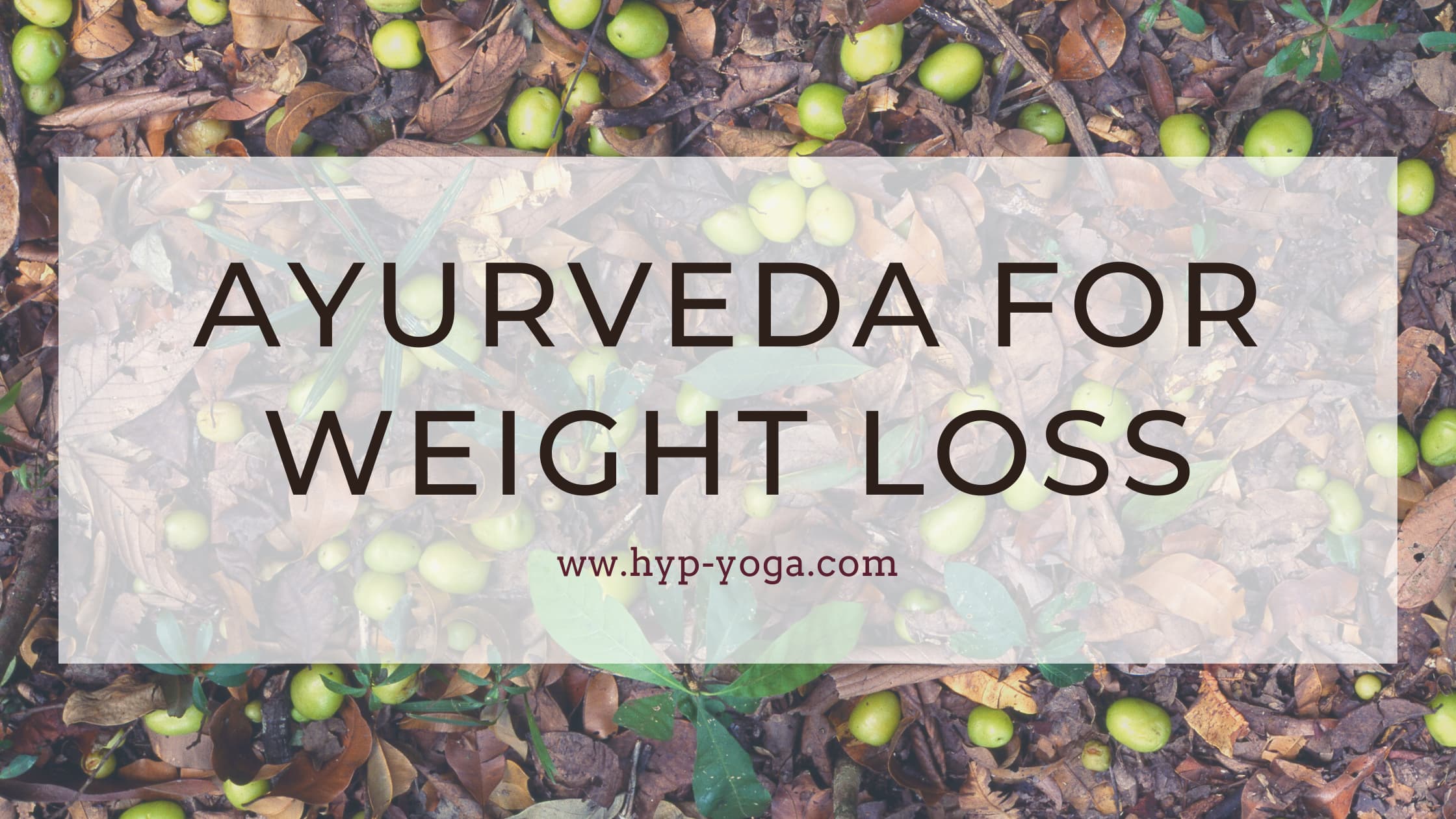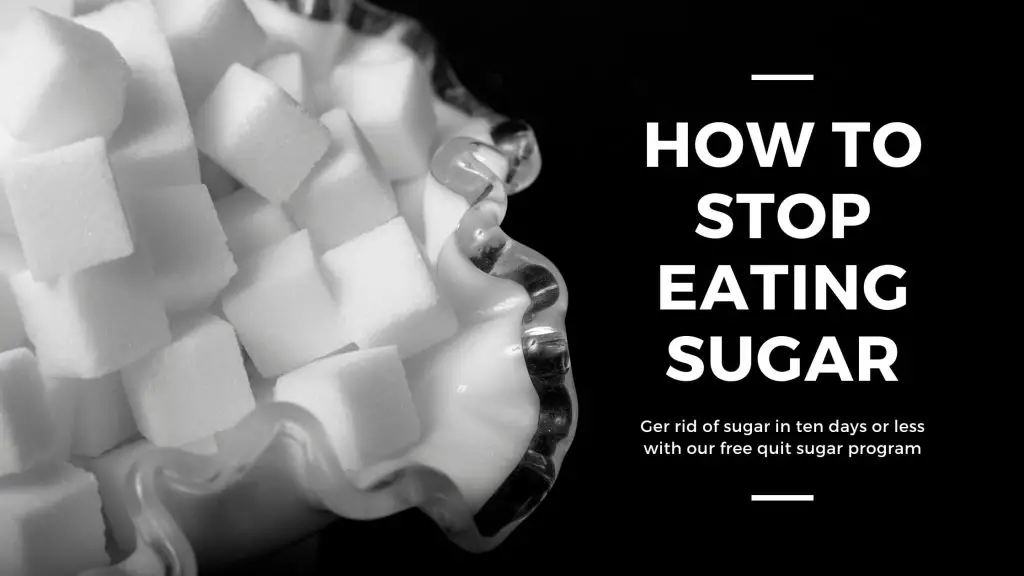Ayurveda Weight Loss – Ultimate Guide on How to Eat to Lose Weight
More than a just a tool for losing weight, Ayurveda has been a guide to living a balanced, healthy life for thousands of years. Ayurveda weight loss techniques, tips and tools are powerful body balancers – especially in regards to diet. We will show you how in this guide.
Ayurveda is the “sister science” to yoga. It gives us guidance on how we can eat healthy (and promote weight loss when it is needed). All of its techniques are natural, and modern diet science has recently circled back to Ayurvedic principals. These include:
- Eating Seasonally
- Eating Locally
- Intermittent Fasting
- Eating to Balance your Body’s Needs
Ayurveda is very in-tuned with eating with the seasons. This means paying attention to what your area of the earth is currently providing. In this guide, we will go through how to eat, when to eat and of course what to eat. However, the biggest component to our ayurvedic eating is that it should NOT be stressful. So, if something we discuss is not working for you after trying it out, you should try to find a stress free solution that is comparable.
Ayurvedic weight loss has been there waiting for modern science to catch up! What we eat, how much we eat, and when we eat has all been a part of ayurvedic medicine for weight loss. In this guide, we will cover what you need to find the balance you need to lose weight (or maintain) with Ayurveda’s help.

- This guide is a part of our free online weight loss program. This part of the series is focused on “diet” or the food that we eat.
- Please visit our main program page to experience the program as a whole: body, mind and behavior change.
Ayurveda’s Food Philosophy
This guide is for all of you that are tired of the shenanigans of the “diet” industry and their lies and claims. It’s time for us all to reclaim our health. Ayurveda can help you to take control of your weight loss, maintenance, and weight PREVENTION journey.
Following the food philosophies of Ayurveda, you can lose weight in a safe way that will not destroy your metabolism for later. Most diets destroy your metabolism by restricting your calories too much and completely throwing off your hormone cycles. You need to keep your hormones (like insulin and cortisol) happy to stay fit for life.
Additionally, Ayurveda is also about detoxing. Daily detoxing through our food and exercise, and then bi-yearly detoxing for keeping our bodies free from disease.
As we know, no two bodies are alike, and so no diet fits all, but all bodies do share similar characteristics that set-up our framework for creating a unique diet tailored to your needs. Ayurveda characterizes these differences in “doshas.” So, that is where we will begin our Ayurveda weight loss journey.
Books We Recommend on Ayurvedic Diet and Lifestyle
But! Before we begin, these are the books we recommend for getting more in depth in your Ayurveda lifestyle and weight loss journey. Much on this free online guide we put together for you here is based on our use of these books over the last 10 or more years.
 Check Price | Eat – Taste – Heal: An Ayurvedic Guidebook and Cookbook for Modern Living, by Thomas Yarema, Daniel Rhonda, and Johnny Brannigan This book still includes the science, but also includes delicious recipes, beautiful pictures and a complete guide to balancing your body type. It’s a favorite among our visual learners. |
 Check Price | The 3-Season Diet: Eat the Way Nature Intended: Lose Weight, Beat Food Cravings, and Get Fit by John Douillard A great introduction to how Ayurveda can help you to lose weight. This book gets more in depth than our other cookbook options. It is great for those that enjoy “nerding out” a little. |
 Check Price | Eat Feel Fresh: A Contemporary, Plant-Based Ayurvedic Cookbook by Sahara Rose Ketabi (Author), Deepak Chopra MD (Foreword) Not just a weight loss book, but a cookbook for everyone looking for the balance and health that can come with an Ayurvedic diet. The famous Deepak Chopra even makes an appearance in the introduction of this book! Like our other recommendations, this book also guides you through discovering your dosha (body type) and how to eat to balance it. |
Body Types “Doshas”
Ayurveda is the sister science to yoga. It focuses on the root of the problem, not just the symptoms of a problem (symptoms = weight gain, energy loss, depression). Ayurveda is focused on healing and prevention. It is different than a yogic diet, which has its focus on making the body less in the awareness in order to reach enlightenment.
Ayurvedic teaching helps us to become aware of our individual body, mind and spirit and work with those elements in a very proactive manner to prevent illness. We all are different, and because of our differences we all need an individual approach to wellness and weight loss. We all have different constitutions that change throughout our lives.
Three Main Doshas
There are three main body/personality types in Ayurveda –
- Vata (air)
- Pitta (fire)
- Kapha (earth and water)
We all have all three doshas (mind/body constitutions) within us, but at times one or more are more present that the others.
Dosha Explanations
Please keep in mind as you read the dosha explanations: You can be more than one at a time! In fact, we have all three doshas in us at all times. Moreover, you probably will have one or two that speak to you more right now.
Doshas change/fluctuate over time.
Vata Dosha Qualities (Winter Type, Air Element)
Vata is the creative, free spirit in us. It is also the drying element. Moreover, we all become more Vata as we age. If Vata is out of balance, we can feel anxious or flighty. Our mind, body and spirit can become dry, brittle or fragile if vata is not balanced by our other doshas.
Body – Dry Skin/Hair/Nails, Light, Cool, Rough,, Good at quick activities (i.e. sprinting)
Mind/Spirit – Creative, Global Thinker, Changing, Daydreamer, Scattered, Nervous, Fidgety
Imbalances – Insomnia, Dryness, Constipation, Underweight, Anxiety, Fatigue, Hyperactive
Balancers- Moisture, Quiet, Grounding, Warmth, Oil, Stabilizing Routines, Sweet things,
Yoga Practice – Slow, Meditative, Grounding
Pitta Qualities (Summer Type, Fire Element)
Pittas are driven, motivated individuals that are usually leaders. A good amount of Pitta will keep your passion for life brilliant, but too much Pitta leads to frustration, anger and an out of balance life leaned toward too much work and not enough rest.
Body – Oily, Sharp, Hot, Light, Warm Body, Acidic, Strong
Mind/Spirit – Fluid, Convincing, Aggressive, Passionate, Firey, Focused, Angry, Frustrated
Imbalances- Inflammations, Acne, Rashes, Acid Reflux, Heartburn, Irritability, Aggression
Balancers- Fresh/Raw, Cooling Foods, Sweet, Bitter and Astringent Tastes, Meditation
Yoga Practice – Medium Paced, Focused, Reflective
Kapha Qualities (Spring Type, Earth/Water Element)
Kaphas are slower to react in life and in the body. Kaphas are loyal, sweet spirits that take their time making decisions, friends, etc. When out of balance, Kaphas can be lethargic and have a slowed metabolism with an excess of earth and water. Kapha bodies hold on to any extra weight so metabolism needs to be jump started with lighting the inner fire.
Body – Retains Water, Mucus, Cool, Heavy, Slow, Smooth/Thick, Good at endurance
Mind/Spirit – Static, Loyal, Generous, Compassionate, Indecisive, Slow,
Imbalances- Slow Metabolism, Congestion, Stagnation, Weight, Depression, Lethargy
Balancers- Pungent, Bitter/Astringent Foods, Activity, Heat, Drying, Lightness of Mind/Body
Yoga Practice – Invigorating, Faster Paced, Detoxifying
SIDE NOTE: The Relationship with Ayurveda Doshas + Hypnosis/Guided Meditation
Here are the reasons that these hypnosis sessions are so powerful for balancing our doshas – According to yoga and Ayurveda, we have a body (we are not the body) but we need to LIVE in our bodies abundantly fostering energy, creativity, confidence, love, intelligence, inspiration and radiance. Everything you do creates who you are.
Even physically, as we try new activities and change or behaviors, our brains create new neural pathways that not only make us better at specific activities, but more creative and intelligent in everything we do! We can change ourselves radically with our day to day activities. We are boundless! We need to prepare ourselves for change. Accept the powerful mind/body connection and accept that your brain will change with your practice.
Weight Problems and Doshas
Typically (but not always) Kapha will be the dosha out of balance when we have excess weight. For this reason, weight loss diets in Ayurveda often focus on foods that decrease heaviness in our bodies.
What Food to Eat to Lose Weight and Balance Kapha
Here are the foods that make Kapha problems worse (aka the foods that will not help you to lose weight at all):
- Highly processed foods
- Sugar, desserts, anything sweetened (look for hidden sugars, 75%+ of processed foods have added sugars)
- Simple Carbs (especially processed ones)
- Starchy foods
- Fried Foods (especially in unnatural oils)
- Snacks (outside of meal times)
What Foods Make Kapha More Balanced (foods that help aid weight loss):
- Whole foods
- Vegetables and some fruits (if you are really trying to lose weight, focus on low sugar options)
- Complex Carbs in small portions
- Fats! Natural, not processed, fats from all whole food sources – don’t be afraid of fat. It is good for you, and it is not true that fat makes you fat.
- Proteins from unprocessed sources – organic preferably (on everything).
- Skipping meals or opting for supplemental smoothies to lead into intermittent fasting
Food Cravings
Why we crave certain foods. If you have ever been on a diet, which most of us have at some time in our life, you find you crave certain foods. If you are following a diet that is low fat you may crave French fries or ice cream. If you are following a low carb diet you crave bread or pasta. This is natural and pretty predictable because our bodies need balance and foods of all types to function properly.
We need protein, carbohydrates, fruits and vegetables and healthy fats to bring all the nutritional value to our body for digestion and metabolism. If you restrict one food group from your diet your body will miss it and tell you loudly that it needs to be brought back in to balance. This message tends to get louder and louder the more deprived your body feels and eventually when you do relent you will probably fall off of your diet and feel bad about another diet failure. The reality is your diet didn’t fail, you didn’t fail, your body just won the battle to bring itself back into balance.
The secret to avoiding cravings is to eat healthy clean foods in balance. We all need complex carbohydrates from whole grains, lean proteins, fruits, vegetables, and natural plant based fats. If we have all in balance your body will be happy, grateful and healthy!
Balancing Kapha often does mean staying away from simple carbs and focusing more on fats and proteins. However, complex carbs can help to keep you satisfied and away from the true “evils” of simple, processed carbs and sugar.
On that sugar note, sweet is hard to kick. If you need extra help getting rid of sugar from your diet, then start here.
HOW TO QUIT SUGAR – FREE 10 DAY DETOX
When We Eat
The last element to consider is when we eat. Ayurveda suggests and science has proven that our digestive system runs on a daily cycle. When we wake up in the morning, our digestive system is also waking up. It’s strong but not at its strongest. So eating a good breakfast of wholegrain or oat cereals, fruits and light proteins is a good idea to sustain us to lunch.
Our digestive process is strongest at lunch time so this is the time to eat your biggest meal of the day. Eating lots of fiber, proteins and sustaining nutrients at lunch is very important to keeping your energy up for the rest of the day. We all have a lot to do and it makes sense that this is the time when our bodies need the energy.
Note, eat without stuffing yourself, still being mindful in your eating process, but knowing that this is the time to eat what you have been craving. (By now we are thinking about good foods all the time, so we should be craving foods that are good for us.) When in maintenance phase, if you are going to eat sweet or rich foods, this is the time to eat it when your digestive system can handle it best.
Ayurvedic Intermittent Fasting for Weight Loss
Supper is the time to eat a smaller meal that will sustain you until the morning. Soups and salads are wonderful options for this time. Eating before 7 pm will insure that your digestive system will be up for the challenge, after that your digestive process slows down. I am sure you have experienced in the past eating too much late at night and then feeling gross the next day. The body just can’t handle a big digestion project like that at night and it will sit in your body until the next day.
Many generations before ours have eaten lunch as their main meals and dinner or supper as their smaller meals. It makes sense – also, think about how much money you will save if you eat out on lunch prices for your big meals and dinner prices for your smaller soup and salad meals.
When you are first starting out on your weight loss journey, begin with the small supper. Then, when you are ready, you can skip dinner altogether. This is how Ayurveda has always approached weight loss, and what we now call “intermittent fasting.”
How Our Dosha Focus Changes Throughout the Day:
| Time | Season | Dosha | Event |
| 6-10 am | Spring | Kapha | Muscles get Stronger |
| 10am-2pm | Summer | Pitta | Digestion is Stronger |
| 3pm-6pm | Winter | Vata | Nervous System is Active |
| 6pm-10pm | Spring | Kapha | Metabolism lowers to get ready for sleep |
| 10pm-2am | Summer | Pitta | Liver is Cleansing |
| 2am-6am | Winter | Vata | Cortisol Levels Increase |
Cookbook for Modern Living, by Thomas Yarema,
Daniel Rhonda, and Johnny Brannigan
How to Use Your Body’s Natural Rhythm to Lose Weight
- MORNING – Your cortisol starts to rise at about 4 am, which signals your body it is time to wake up. Your body wants to work on getting stronger in the morning, so this is a great time to eat protein and also to workout by doing yoga, walking or lifting weights.
- AFTERNOON – Your metabolism is at its highest from 11 am – 2 pm, so this is the BEST time to eat the MOST food of the day. Lunch should be the biggest meal to stabilize your glycemic index (blood sugar levels) so that you have consistent energy throughout your day and evening.
- EVENING – Dinner is the smallest meal of the day since the metabolism has slowed ++ Use to be called “supper” – which meant “supplemental meal” ++ Your metabolism keeps slowing down from 2 pm on, and really shuts off after 8 pm. If your metabolism did not “go to bed” then you would never sleep! You need this cycle to happen in order to sleep well. Any thing you eat after 8 pm can just sit in the stomach overnight and make you feel sluggish in the morning.
- NO SNACKING – all calories should be moved eventually into meal times so that the body is not constantly having to focus on digestion and can instead work on other important systems. This is especially important to KAPHAS because kaphas have a much slower digestive process than people with pitta or vata being stronger.
- PHASE 2: SKIP DINNER FOR WEIGHT LOSS – Since dinner is just a supplemental meal, we can eliminate it completely when possible. Maybe try only eating breakfast and lunch a couple times a week. Make sure you are eating a complete meal for lunch with healthy, flavorful foods. SLOW DOWN when eating and be completely mindful – all this will help you in being able to skip dinner. Start with just skipping dinner maybe once or twice a week, then build up to skipping more as needed.
Ayurveda Weight Loss Daily Plan
This is a starting point for you to see how your body feels, and you will adjust as you become more familiar with your body’s cues. The foods listed on your seasonal shopping list will help you to make choices resulting in weight loss and management. The foods listed are not the only foods you can eat, but they are the most balancing for your body and the season. We eat according to the spring shopping list any time we want to see even greater weight loss results regardless of season unless we start to see an imbalance in the body.
“A Perfect Day”
| Time | Food/Drink or Activity | Quantity |
| 5:30 am Upon Arising | Pure Hot Water (May add lemon, especially in winter) | 16 oz. – Drink Quickly to Flush |
| Morning | Vigorous Exercise, Dry Brush, Oil and Shower20 min – 60 min If possible, wait 20 min after dry brush/oil to shower | |
| 7:00 am Breakfast | Ayurvedic Smoothie: Protein Powder with Almond/Rice Milk or Water – can blend with fruit and/or oats, chia, flax, greens | 3 Tablespoons Powder, 8 oz liquid, 1 cup fruit – Click here for protein recommendations and tools |
| 10:00 am | Water or Tea | 16 oz warm or hot, no sugar added |
| Between 11 am – 2 pm Lunch | 1/4 Lean Protein 1/2 Complex Carbs (Vegetables, Whole Grains) 1/4 Good Fats 8 oz Water | Eat slowly and do nothing else while eating. Remember, only fill the stomach 2/3rds full. |
| After Lunch | Take a Walk or Find a way to move your large muscles Deep Breathe or Do Hypnosis | 10-20 Minutes 5 – 15 Minutes |
| 3:00 pm | Water or Tea | 16 oz warm or hot, no sugar added |
| 5:00 pm Dinner | Step One: 1/3 Grains/Beans, 2/3 Complex Carbs (Vegetables) OR Step Two: Protein Powder & Greens with Water | If you ate enough for lunch, it should feel natural for dinner to be smaller. Eventually we can completely omit dinner for intermittent fasting |
| Between 5:30 pm – 8:30 pm | Yoga or Other Exercise Water or Tea | 60 – 90 Minutes 16 oz warm or hot |
| 10:00 pm | Bedtime! | Can do a hypnosis or meditation to help fall asleep. |
Ayurveda Weight Loss Tips and Notes
- Focus on eating protein and fat for breakfast
- Lunch is the largest meal – 60% off all calories for the day, harder to digest foods should be eaten at this time as well
- Dinner is the smallest meal of the day since the metabolism has slowed
- Limit snacking – can have small snacks in the beginning (Ayurveda wants to meet us where we are at!) but trying to get away from eating ALL DAY, limit snacks to nuts or fruits/veggies of the season
- Then, NO SNACKING – Eat only at meal times: 3x a day, then 2x a day
- Add Supplements If Needed – Trim Support for Metabolism/Ridding excess Kapha (heaviness) and Triphala for Detox/Antioxidant
- Continue hot water flush in the morning and warm water or tea throughout the day
- Continue Protein for Breakfast, Bigger Lunch, Smaller Dinner
- Remember, your body runs efficiently. Which means it needs less food to do more than the average individual. Eat to feed your cells.
- Food Focus: EAT THE SUN.
- Focus on eating foods in this order:
- 1. Direct: Foods that get their energy directly from the sun. (i.e. plants, nuts)
- 2. Secondary: Foods that get their energy from group #1. (i.e. fresh meats)
- 3. Dead: Packaged, processed foods that have lost their energy from the sun by being altered, added to and shelved for who really knows how long. (i.e. candy, canned foods, frozen dinners, long labeled boxes of food.) LIMIT or ELIMINATE these foods.
- Focus on eating foods in this order:
- Remember the 1/3rd Rule:
- When eating a meal, eat to fill 1/3rd of the stomach with food, 1/3rd with water, and 1/3rd with air (leave space for air so the stomach muscle can have room to work).
Ayurveda and Stress (A hormone discussion)
Let’s take a moment to appreciate how wonderful our human body is. We have so many chemical reactions, systems and processes that make up who we are physically and these processes have an effect on how we feel emotionally. When we treat our body lovingly and carefully, all of these systems function correctly and produce chemicals that keep us happy and healthy. When we treat our body poorly by eating incorrectly and not exercising enough, our systems are compromised by stress hormones and survival chemicals.
Why We Have to Manage Our Stress to Lose Weight
Your body will only burn fat as fuel if it thinks that life is not an emergency. This is due to your hormones. They regulate your body (and your weight) and keep you healthy. If you are stressed all the time, you will produce the hormone cortisol. Cortisol tells your body to access quick energy, so you will burn glucose as fuel. Over the years, this makes you even more insulin resistant (another hormone that regulates weight) and then it will be even more difficult to shed the pounds.
So, what to do? Make sure that you find ways to stay relaxed. You will only burn fat when your body says that it is safe. Fat has been called the “gold under the mattress” your body will only spend it as a last resort. Here are ways to lower cortisol and make your body more sensitive to insuln:
- Exercise – walking, yoga, weight lift, anything you find fun that moves you
- Deep Breathing (through the nose)
- Meditation
- Hypnosis
- Enjoying Yourself
- Being in Nature
- Massages
You have permission to treat yourself right, and make sure your weight loss efforts are not stressful – take it all in small steps.
Self Hypnosis for Letting Go of Stress and Loving Yourself
(Read it and then repeat the affirmations to yourself for one minute with eyes closed, breathing through your nose.)This knowledge is now a part of your mind and the effects of your actions give even more clarity to your thoughts and choices.
You know that your body is the only body you will ever own. For this reason, you treat your body like an ally. Like a dear friend. You use your respect for your body to fuel your desire to continue to eat healthy and exercise. You are losing the exact amount of weight necessary to get your body to the size it needs to be. You are loosing weight safely by shedding 2 to 3 pounds a week, and you will keep this weight off. Your mind is now creating many more options and ways to keep you losing weight and feeling healthy.
Ayurvedic Diet for Weight Loss: Frequently Asked Questions
Here are some of the most frequently asked Ayurvedic diet questions we receive in regards to weight loss.
Is Ayurvedic Medicine Effective for Weight Loss?
In Ayurveda, “medicine” encompasses everything we do to and put into our bodies. While supplements can be involved, our food is medicine, our breathing is medicine and our daily exercise and activity is medicine. When people are asking “does ayurvedic medicine work for weight loss?” they are usually referring to Ayurvedic supplements.
- Which Ayurvedic Medicine is Best for Weight Loss? Your food is your first medicine in Ayurveda. If you are looking for the best supplements for weight loss, then you can read about them more on our weight loss tools list.
Ayurvedic Detox for Weight Loss – What is it and Does it Work?
Ayurvedic Detoxes are very popular and also effective when done right. First, understand that your body is highly effective at detoxing itself. However, our modern lifestyle and diet can overwhelm our systems. An ayurvedic detox is more of a way to give your body a break, and let it catch up with its natural detoxing process. Detox programs typically include natural, mild, whole foods, ways to destress, and ways to help your body metabolism and eliminate properly.
Part of Ayurvedic Detoxing are the signature massages that have been preformed for hundreds of years, which leads to our next question…
Does Ayurvedic Massage Help in Weight Loss?
There are many cleansing and destressing benefits from ayurvedic massage. Some of the benefits include
- Stimulation of the lymphatic system to help with detoxing
- Reversing negative hormone cycles that are affected by stress
- Body type (dosha) balancing
All of these benefits have associations with weight loss, and can be very beneficial for staying healthy.
Conclusions and Final Thoughts
In summary, Ayurveda is the sister science to yoga that is based on prevention and living a full abundant life. Typically, the western medicinal system is based upon treating our ailments instead of looking to root causes and working towards prevention.
Next, Ayurveda sees everyone as an individual and not one size fits all. There are 3 doshas or 3 major characteristics that define our body type as well as our personalities. People may be of a predominant dosha or constitution, but all doshas have the basic elements within them. We eat foods to help us balance our doshas, and as a result, if we need to, we will lose weight.
You can do this!
There are no excuses good enough to keep you from your right to health and longevity. It is your right to feel good in your body and confident in your ability to take the best care of yourself that you can.
At Hyp-Yoga.com, we want to help get you closer each day to your ideal self using powerful tools that will GET – YOU – THERE – FASTER.
In addition to Ayurveda, check out our recommended tools in the areas of psychology, fitness and modern and ancient medicine. And I guarantee you that specifically…..through the power of yoga and hypnosis – you can lose weight, change behaviors, attract success, become a better parent … or lover… or business person … or you can just be a more alive, vibrant version of yourself
You are right where you are suppose to be. Right now. I truly believe that.




